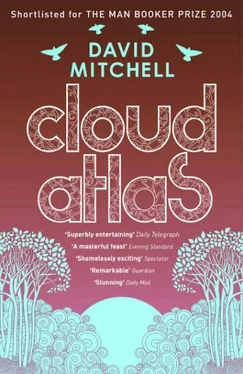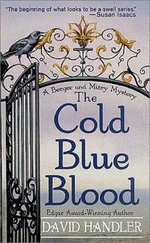“What?” I said, matching her whisper.
“Friend,” she said, even softer, and then removed her hand.
FORT RICHARDSON HID ITS BIGGEST SECRET FROM VIEW in a flimsy, leaking, large Quonset hut, surrounded by a chain-link fence topped with rusting razor wire. A single MP was stationed at the gate to the mini-compound, right next to a little wooden placard that read “ 520” and nothing else.
I didn’t have time to take in much more the first morning I reported for duty. Before I could finish studying the outside, the MP on duty told me to move along. I almost did, but instead, gave my name, told him my purpose, and waited while he gave me a long, exaggerated, head-to-toe inspection. Clearly, Gurley had handpicked him. He asked me to repeat my name. I did; he unlocked the gate, nodded me in, and then locked it behind me.
I had to admit: Gurley was doing a good job of intimidating me, and, I assumed, the rest of the base. Sure, everyone said they had top secret jobs, but how many worked in an outsized Quonset hut protected by fencing, razor wire, and a twenty-four-hour sentry?
A yellow bulb above a doorway directly before me seemed to indicate the building’s entrance; the door itself had a small window that was blacked out. Inside, the darkness was almost total. I moved slowly; after our initial meeting in the bar, I was sure of an ambush. The door swung shut. I put up my hands to fend off the attack, but instead it came from below-a steel pipe of sorts to my shins. I staggered, cursed, and fell into a crouch, hands futilely-pathetically-around my head. “Stop!” I shouted, although that is probably me revising: I wailed.
No response. No second blow. At the far end of the Quonset hut, a door opened and light spilled out. I could now sense a vast open space. At the end of it, where the light was, an office had been carved out. The rest of the floor was devoted to all manner of war matériel, much of it unrecognizable. Giant tarps hung in odd profusion from the ceiling. Looking down, I could see that it had been some sort of a metal fitting, protruding from a cage the size of four or five milk crates, that had attacked me.
“Belk!” Gurley shouted from the office doorway. I lifted a cautious hand. “Always doing things the hard way, aren’t you? That’s the back door. The front door is over here.” As my eyes adjusted to the gloom, I could see a door near the office at the far end of the building. But it was still too dark to see how I was supposed to get from where I was to where he was, so I started back toward the entrance I’d just come through, thinking that I’d walk around the outside. But before I’d made the door, Gurley threw some switch that illuminated the entire building. “It’s an easier walk with the lights on,” he called, and then stepped back into his office.
I could see, but I couldn’t move.
Gurley’s Quonset hut looked like the official Army Air Corps circus tent. Ropes and tackle were everywhere. Strange metal-crates, for lack of a better word-lined the walls. Piles of sandbags appeared at regular intervals. And those tarps I’d seen-with the light, I could tell they were much more than that: great fabric teardrops, upended (or balloons, once I’d thought about it), all of them limply hung from on high.
GURLEY’S OFFICE WAS an even stranger sight. Tyrannically neat, of course. Everything was gunmetal gray-the desk, the lamps, the filing cabinet, and a locker against the wall. Even the walls themselves were covered in gray metal paneling. My first impression was that the army had stuffed Gurley into a giant footlocker. I later decided that the metal fixtures and smooth walls resembled something else: I had picked my way into a bomb.
Along the back wall, a series of clocks, each labeled with a Roman numeral-up to VII, I believe. But much more interesting was the map below the clocks. It stretched across the entire rear of the office. It was a map, mostly of the North Pacific-except that it extended all the way south to Hawaii, and as far east as Michigan -and it was the only untidy thing in the room. Bright pushpins spread across the map’s rinsed-out blue, brown, and green like a virulent disease, appearing singly and in clumps.
“Fifty,” Gurley said.
“Looks like more than that, sir,” I said, still staring at the map. The truth was, it would have been impossible to count the pins. There were dozens of them, maybe hundreds. At first I took them to be army bases, but dismissed that idea. Then I decided that Gurley had marked the map wherever he’d struck a man. White for where he’d wounded them, red for where he had killed them. There was a cluster of red just outside Anchorage.
“Fifty men,” he said. Maybe I was right.
“What I am about tell you, no more than fifty men in the country now know.” I started to believe him, but wondered, as he took a deep, melodramatic breath, if Gurley had not delivered this line dozens of times before. I could see him savoring the moment; he had that slight suggestion of a smile I now know steals across some actors’ faces before a favorite speech. If I were mapping my own path in the war, I would stick a pin right there to mark that moment, in that office, in the light of that smile, because that’s when I should have seen how helpless Gurley really was. It was as though he thought of the theaters of war as theaters, and that his role in the war was exactly that, a role.
He had paused after his “Fifty men” preamble, and now leaned forward to deliver the coveted secret. “The Japs,” he intoned, “have reached North America.”
I sat back: I think I was supposed to be frightened, but instead, I was confused. “The Aleutians, you mean?” A lot more than fifty people knew about that debacle.
Kiska and Attu, two brutally wet and cold islands at the end of the Aleutian chain, had been occupied by Japanese troops in 1943. The islands were of little strategic value, except in the sense that Roosevelt was enraged that the Japanese were occupying American soil. The U.S. had stumbled in its initial response; America ’s Army, Navy, and Air Corps all fought each other for a while before turning their attention to the Japanese. Then the weather set in. Then the Japanese dug in. Three thousand Japanese on Attu held off an American force triple their size for days. The Japanese eventually lost, but they fought to the last man, or just about. Just twenty-eight of the three thousand Japanese soldiers on Attu survived to be taken prisoner. Most of the patients in their field hospital committed suicide. Those who couldn’t, or wouldn’t, were killed by their doctor before he killed himself.
After the bitter slog on Attu, the U.S. brought in even more forces for the assault on Kiska, where the main Japanese garrison was located. Tens of thousands of Americans stormed ashore, guns blazing, only to discover that the Japanese had abandoned Kiska two weeks before. More than one hundred U.S. soldiers still died, all from friendly fire.
So, if the Japanese had returned-well, I couldn’t speak. This is why the colonel back in California had laughed when he heard I was being taken to Alaska. The Aleutians! It was where the world ended, careers ended, lives ended. Suicides were rampant. So were courts-martial. GIs sent there weren’t even told of the destination until they were safely aboard ship and through the Golden Gate, a practice Gurley himself surely approved of.
“The Aleutians?” he said. “Good God, Belk. This means you’re literate-you do read, and read the papers, to boot—” He feigned awe, and then resumed. “But no. Hell no. I’m not talking about the Aleutians -the islands or the swarthy Lilliputians who populate them. I’m talking about the fucking homefront, my brother-in-arms. The watch-fires of a hundred circling camps.” He started tapping the map. “ Washington, Oregon, Idaho, Montana.” His eyes grew wider, his voice deeper. He was a prophet. A leader. The Wizard of Oz.
Читать дальше












